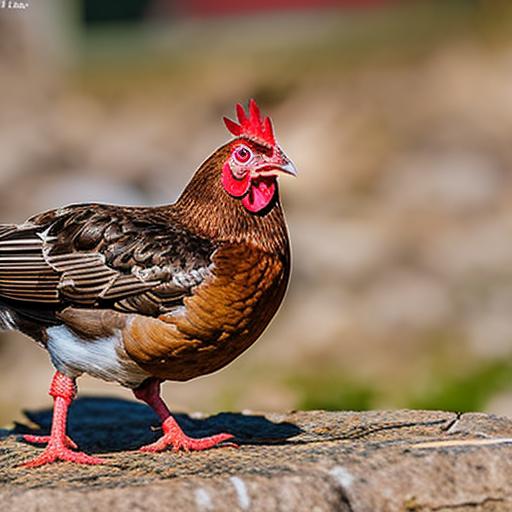Keeping chickens in urban areas has become increasingly popular in recent years, and Chicago is no exception. Urban chicken keeping has a long history, dating back to the early 20th century when many families in cities kept chickens for eggs and meat. Today, the benefits of keeping chickens in the city are numerous. Not only do they provide a sustainable source of fresh eggs, but they also help reduce food waste by eating kitchen scraps and provide natural pest control for gardens.
Key Takeaways
- Keeping chickens in Chicago is a growing trend among urban dwellers.
- Legal requirements for keeping chickens in Chicago include obtaining a permit and following specific guidelines.
- Choosing the right breed of chicken for urban living is important, with considerations such as noise level and egg production.
- Setting up a coop and run in a small space requires careful planning and consideration of the surrounding environment.
- Feeding and caring for chickens in an urban environment involves providing a balanced diet and monitoring their health regularly.
Legal Requirements for Keeping Chickens in Chicago
Before getting started with keeping chickens in Chicago, it is important to familiarize yourself with the city ordinances and regulations regarding urban chicken keeping. In Chicago, residents are allowed to keep up to six hens (no roosters) on their property. However, a permit is required, and there are specific regulations regarding coop placement and size. The permitting process involves submitting an application and paying a fee, which can vary depending on the number of chickens being kept.
Choosing the Right Breed of Chicken for Urban Living
When selecting a breed of chicken for urban living, there are several characteristics to consider. First and foremost, you will want to choose a breed that is known for being quiet and docile, as noise can be a concern in urban areas. Additionally, you will want to choose a breed that is known for being good egg layers, as one of the main benefits of keeping chickens in the city is having a fresh supply of eggs. Some popular breeds for urban environments include Rhode Island Reds, Plymouth Rocks, and Australorps.
Setting Up a Coop and Run in a Small Space
One of the challenges of keeping chickens in an urban environment is limited space. However, with some careful planning and design considerations, it is possible to set up a coop and run in even the smallest of yards or balconies. When designing your coop, it is important to consider the size and layout of your space, as well as the number of chickens you plan to keep. Additionally, you will need to gather the necessary materials for building your coop and run, such as lumber, wire mesh, and roofing materials.
Feeding and Caring for Chickens in an Urban Environment
Feeding and caring for chickens in an urban environment is similar to caring for chickens in a rural setting. Chickens require a balanced diet that includes a mix of grains, protein, and fresh fruits and vegetables. It is important to provide them with access to clean water at all times, as well as a safe and comfortable place to roost and lay eggs. Additionally, regular health checks and vaccinations are important to keep your chickens healthy and happy.
Dealing with Noise and Odor Concerns

Noise and odor can be concerns when keeping chickens in an urban environment. To minimize noise, it is important to choose quiet breeds and provide them with a comfortable and secure coop. Additionally, keeping the coop clean and regularly removing waste can help minimize odor. If you receive complaints from neighbors about noise or odor, it is important to address their concerns and take steps to mitigate the issue.
Health and Safety Considerations for Chickens in the City
Keeping chickens in an urban environment comes with its own set of health and safety considerations. Potential hazards include predators such as raccoons, rats, and neighborhood dogs. It is important to take steps to protect your chickens from these threats by ensuring their coop is secure and providing them with a safe outdoor run. Additionally, regular health checks are important to catch any potential health issues early on.
Harvesting and Using Fresh Eggs in an Urban Setting
One of the main benefits of keeping chickens in the city is having a fresh supply of eggs. When harvesting eggs, it is important to collect them daily and store them properly to ensure freshness. Fresh eggs can be used in a variety of recipes, from breakfast dishes to baked goods. Additionally, sharing eggs with neighbors and friends is a great way to build community and spread the joy of fresh eggs.
Connecting with the Urban Chicken Community in Chicago
If you are interested in keeping chickens in Chicago, there are many resources available to help you connect with other urban chicken keepers. Local events and workshops are a great way to learn more about chicken keeping and meet others who share your interest. Additionally, online forums and social media groups provide a platform for sharing tips and advice, as well as connecting with others in the urban chicken community.
Is Keeping Chickens in Chicago Right for You?
Keeping chickens in Chicago can be a rewarding and fulfilling experience. The benefits of having a sustainable source of fresh eggs, reducing food waste, and providing natural pest control make it an attractive option for many urban dwellers. However, it is important to consider the legal requirements, space limitations, and potential challenges before getting chickens. With careful planning and consideration, urban chicken keeping can be a wonderful addition to your city life.
If you’re considering keeping chickens in Chicago, you may be wondering how to provide them with a comfortable living environment during the colder months. Luckily, Poultry Wizard has an informative article on the topic. They discuss the importance of a heater for a chicken coop and provide valuable insights on choosing the right one for your flock. To learn more about keeping your chickens warm and cozy in Chicago, check out their article on heaters for a chicken coop. Additionally, if you’re interested in breeding geese, Poultry Wizard also offers information on the incubation period for goose eggs. For those looking to create a garden chicken coop, they have a helpful article that provides tips and ideas. Explore their article on garden chicken coops to discover how you can integrate your chickens into your garden space.
FAQs
Can you keep chickens in Chicago?
Yes, it is legal to keep chickens in Chicago, but there are certain regulations that must be followed.
How many chickens can you keep in Chicago?
You can keep up to six chickens in Chicago, but no roosters are allowed.
Do you need a permit to keep chickens in Chicago?
Yes, you need to obtain a permit from the city of Chicago to keep chickens. The permit costs $25 and must be renewed annually.
What are the requirements for keeping chickens in Chicago?
Some of the requirements for keeping chickens in Chicago include providing a secure coop and run, keeping the chickens at least 8 feet from any residential building, and ensuring that the chickens do not create a nuisance for neighbors.
What are the benefits of keeping chickens in Chicago?
Keeping chickens in Chicago can provide a source of fresh eggs, help with pest control, and provide an educational experience for children.
What are some common misconceptions about keeping chickens in Chicago?
Some common misconceptions about keeping chickens in Chicago include that they are noisy and smelly, but with proper care and maintenance, chickens can be kept without causing any disturbance to neighbors.
Meet Walter, the feathered-friend fanatic of Florida! Nestled in the sunshine state, Walter struts through life with his feathered companions, clucking his way to happiness. With a coop that’s fancier than a five-star hotel, he’s the Don Juan of the chicken world. When he’s not teaching his hens to do the cha-cha, you’ll find him in a heated debate with his prized rooster, Sir Clucks-a-Lot. Walter’s poultry passion is no yolk; he’s the sunny-side-up guy you never knew you needed in your flock of friends!







